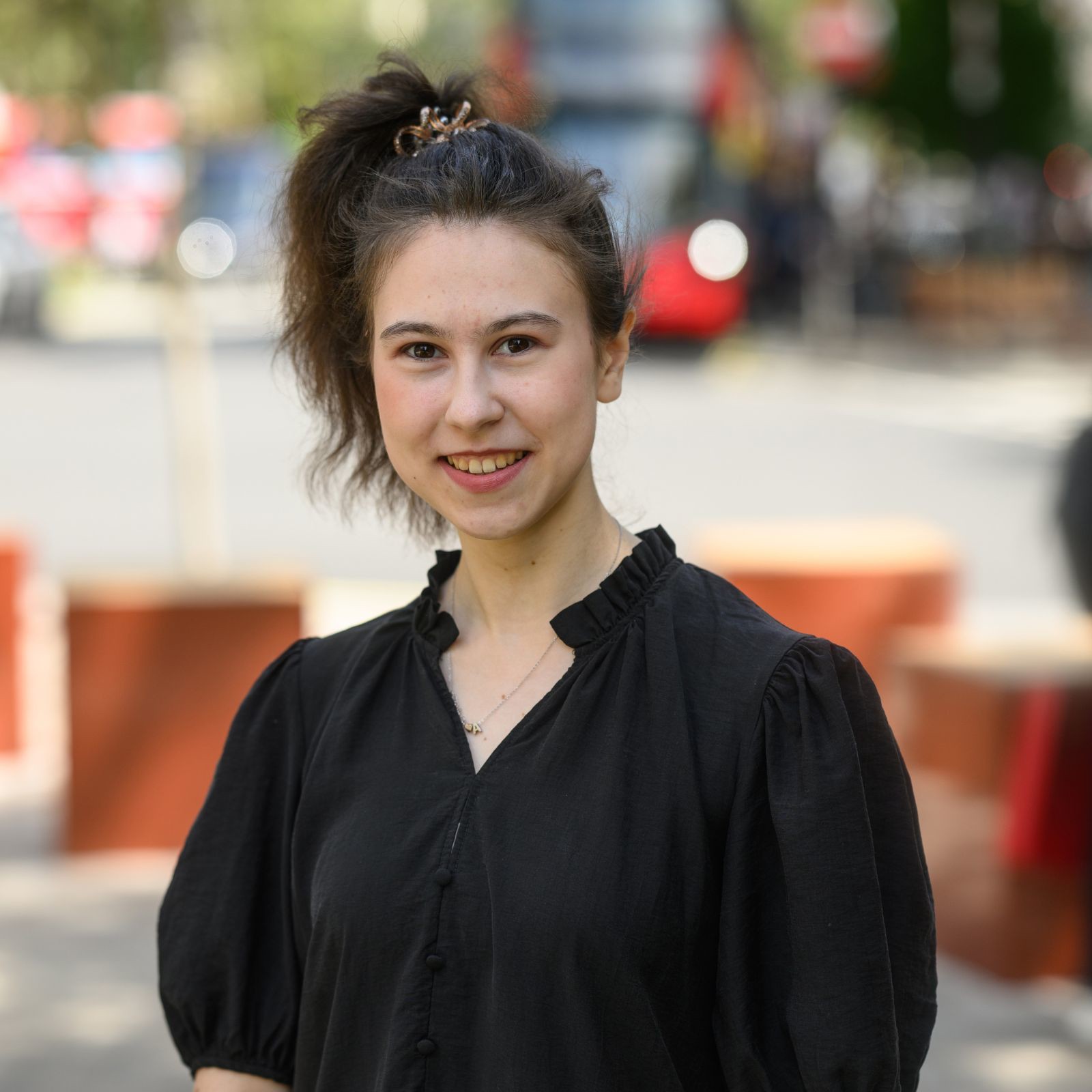5 min read
We sat down with Alisa Vakhitova, who took ME204: Data Engineering Principles for the Social Sciences, to hear about her experience of the course, including the teaching, content and her highlights.
Why did you decide to attend LSE Summer School?
I study on a dual-degree BSc Economics and Finance programme offered by the International College of Economics and Finance (ICEF) at the National Research University – Higher School of Economics (Moscow, Russia) and the University of London (under the academic direction of LSE). In recognition of my outstanding academic achievements, ICEF granted me a full scholarship to attend LSE Summer School in 2023. I had already visited London as a tourist and considered it for my master’s degree, so I was thrilled by the opportunity to experience studying here and to see how I found it.
Why did you choose ME204?
During my BSc degree, I completed several courses on Python. They primarily focused on applied statistical and financial analysis using provided databases, but did not delve into data collection and pre-processing stages. In contrast, ME204 covered fundamental aspects of data structuring, file formats, web scraping and data access via APIs. Additionally, the course introduced best-practice techniques for code organisation and instructed on working with GitHub. Finally, I was enthusiastic about the opportunity to learn R, a widely used programming language in the industry.
Tell us about the average day as a student on ME204
Since I lived in Sidney Webb House, one of LSE’s accommodation options, we had free breakfast served on campus. The journey from halls to campus took around 15 mins on foot and 15 mins by bus, prompting a wake-up time of around 8:00 am. The lectures commenced at 10:00 am and lasted for 3 hours, followed by a lunch break of either 1 or 2.5 hours, depending on the assigned class group. Before the lab classes, I grabbed a coffee and an avocado sandwich from Pret and typically spent time reviewing the lecture content one of the many campus coworking spaces. Evenings were mainly social, where I engaged in Summer School activities like walking tours and theatre trips, or enjoying table tennis and pool in the communal areas of Sidney Webb House. I usually went to bed around 11:00 pm to recharge for another exciting day!
What was your favourite part of ME204?
Working on the final project. The peculiarity of the ME204 course is that instead of a final exam we had a research project worth 75% of the grade. This project allowed us to put into practice the skills that we acquired throughout the course. We had to collect and pre-process data in the field of our choice, conduct a thorough analysis, incorporate visualisations, and present the findings in a comprehensive R Markdown report. Since the project was time-consuming, Fridays were free from classes. Moreover, the final two labs were dedicated to providing technical support and guidance to overcome any coding challenges that we encountered.
What advice would you give to students considering ME204?
Be curious! The more you engage in learning, the more you benefit from the course. If you are new to R, don’t hesitate to ask questions and seek help. Embrace the opportunity to delve into something novel, be proactive, and make the most out of these 3 weeks!
What are your short-term professional goals, and how does ME204 contribute to these goals?
The ME204 course served as a catalyst, propelling me towards a career in data science. Having discovered a strong passion for coding and data analysis during Summer School, I opted to study more advanced subjects like Machine Learning and Deep Learning at my home university this academic year. Impressed by the thriving intellectual environment and exceptionally high educational standards at LSE, I have decided to choose it for my master’s degree. I have already applied to several programmes in the field of data science.
Was meeting and talking to other students on your course easy?
Yes! We engaged in several group activities during the lectures, such as creating an HTML page highlighting our favourite spots in London. It was also exciting to find some course peers among the Summer School Student Ambassadors. Believe it or not, data engineers are often very social and extroverted in practice!
What was your favourite part of studying at LSE?
Getting out of my comfort zone, embracing challenges and socialising. Summer School offers a wide range of activities, including one-day trips to Oxford and Cambridge, sports such as yoga and badminton, and walking tours around the city. I tried to engage in as many networking opportunities as possible. It was a great to boost my soft skills, and I met people from various parts of the globe, and we still keep in touch, following each other on social media.
Did you feel supported by your lecturers?
Not in all aspects. We had a group chat in Slack, and the lecturers responded quickly, providing assistance with complex issues and recommending reading materials. Additionally, we had 15-minute individual office hours on Fridays for in-person consultations.
However, the labs emphasised self-study, allowing each student to progress at their own pace through tasks structured step-by-step. We developed our problem-solving skills, learning to google and consult documentation whenever there was a coding issue. The class teacher guided us in approaching tasks logically rather than aided in code writing. Solutions to class problems were posted in our internal system after each session, so that we could reflect and check our own code.
This teaching methodology proposed an adaptation challenge for me, especially since I lacked prior experience in R compared to most students in the course. Despite this, the intellectually stimulating environment motivated me to progress rapidly.
Would you recommend this ME204 and why?
Absolutely. The course offers a comprehensive foundation in data structuring and access methods, and provides insights into the responsibilities of data engineers. Despite the short 3-week period, the course is rich in applied tasks. Overall, the programme is rigorous and demanding, requiring dedication and hard work, especially for those without a programming background. Embracing the challenge can significantly enhance your skills in a relatively short timeframe!

